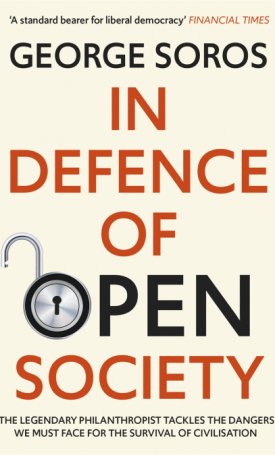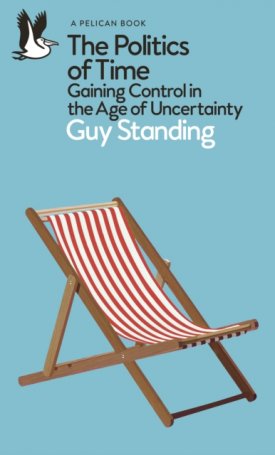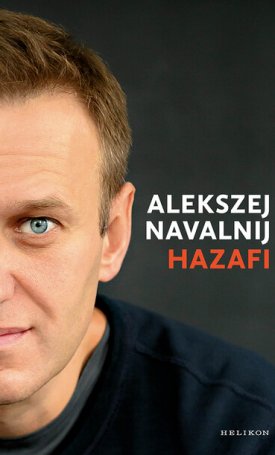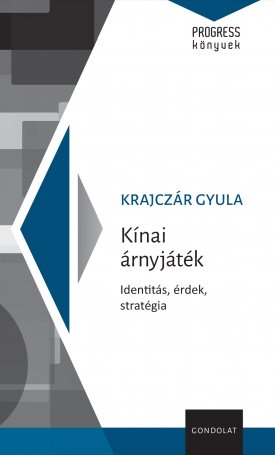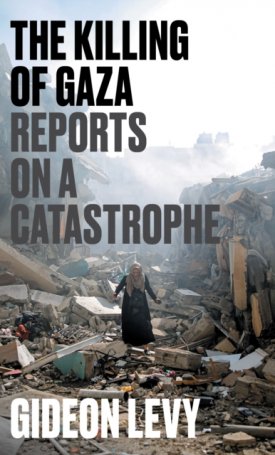In Defense of Open Society
ISBN: 9781529343502
Edition: 2.
Language: english
Size: 129*215
Weight: 147 g
Page no.: 213
Publish year: 2020
In Defense of Open Society
I believe we are living in a revolutionary moment. As a result, practically anything is possible and fallibility reigns supreme.
I’ve had a lot of experience with revolutionary moments. They play an important role in my conceptual framework, where I distinguish between far-from-equilibrium and near-equilibrium situations. They also played an important role in my life and in the life of my foundation.
My experience with revolutionary moments started when Nazi Germany occupied Hungary in 1944. I was not yet fourteen years old. By some measures, it started even earlier, when I used to join my father in the swimming pool after school and he would regale me with tales of his adventures in Siberia during the Russian Revolution of 1917. If I add my father’s reminiscences to my own experiences, I can claim to have a memory going back a hundred years.
Nineteen forty-four was the formative year in my life. One particular incident stands out in my mind. Adolf Eichmann’s first act was to set up the Jewish Council, and as a schoolboy, I was sent there to act as a runner (Jewish children were forbidden to attend school). My first assignment was to deliver mimeographed notices to what turned out to be a list of lawyers whose names started with “A” and “B” to report to the Rabbinical Seminary with a change of clothes and food for twenty-four hours. Before delivering the notices, I went home to show them to my father, who was also a lawyer. He told me to deliver the messages but warn the recipients that if they reported, they would be deported. One lawyer told me that he had always been a law-abiding citizen and that they couldn’t do him any harm. When I reported this to my father, he explained to me that in abnormal times the normal rules don’t apply and people obey them at their peril. That became our mantra, and with his guidance all of us survived. He also helped many other people. That is what made 1944 a positive experience for me.
As regards the life of my Open Society Foundations, revolutionary moments were always important. I would mention the collapse of the Soviet system in the 1980s, which was the first time the foundation played a decisive role, and our role in Europe today, where we are trying to prevent the European Union from following the example of the Soviet Union.
In spite of the intellectual and emotional preparation, we are not exempt from the fallibility that rules supreme during revolutionary moments. We can react to events, but we cannot predict them. That means that we cannot have a firm strategy unless we call flexibility a strategy. I call it a tactic, and I endorse it. It allows us to study and prepare for various scenarios. In order to find something firm, we can rely only on our values and convictions. And that is what we are doing.
This book is entitled In Defense of Open Society, yet when I set up my foundation in 1979, it was not to defend open society but to promote it. For the next twenty-five years, repressive regimes like the Soviet Union were collapsing and open societies like the European Union were emerging. The trend turned negative only after the global financial crisis of 2008. The nadir was reached in 2016 with Brexit in Europe and the election of President Trump in the United States. I was an active participant in these events, and I had plenty to say about them. Now I see some early signs that the tide is turning again.
This book is a selection of my recent writings. It is divided into six chapters. The first chapter deals with the unprecedented dangers that confront open societies today. As the founder of the Open Society Foundations, I regard this as my primary concern today. The chapter contains two speeches I gave at the World Economic Forum in Davos in January 2018 and 2019. The 2018 speech deals with the dangers posed by social media platforms. In the 2019 speech, I warned the world of an even greater threat presented by the instruments of control that machine learning and artificial intelligence can put in the hands of repressive regimes. I focused on the Xi Jinping regime in China, which is the most advanced in these areas. I feel obliged to present the two speeches separately because my own thinking underwent a radical change during the intervening year.
I started formulating my conceptual framework as a student at the London School of Economics under the influence of my mentor, the Austrian philosopher Karl Popper, and I continued developing it over the course of my life. My philosophy has guided me both in making money and in spending it on making the world a better place—but it is not about money; it is about the complicated relationship between thinking and reality. I have decided to postpone the explanation of my philosophy until the last chapter because the best account is my article in the Journal of Economic Methodology in 2014. It was addressed to a specialized audience and it is therefore rather heavy going. I was afraid that I would lose many readers if I inflicted it on them early on. I hope somebody will write an explanation that is more accessible to the general public, but I am both too old and too busy to do it myself. I did, however, try to make it more accessible by revising and abridging the Journal of Economic Methodology article for this book.
I’ve devoted the second chapter to what I call my political philanthropy. I wrote my first essay on the subject in 2012, where I posed the questions: How could someone who is admittedly selfish and self-centered create a selfless foundation whose goal is to make the world a better place? And how can he pursue that goal even if the results don’t satisfy him? I answered the questions very honestly. I have updated that essay for this book not only to reflect my current views but also because both the external situation and my foundation’s structure and activities are very different today from what they were in 2012. Reflecting the changed conditions, some of my views have also changed.
The external situation has greatly deteriorated. As I explain in Chapter 1, an unprecedented danger has emerged in recent years. The rapid development of artificial intelligence and machine learning has produced instruments of social control that give repressive regimes an innate advantage over open societies. For dictatorships, they provide useful tools; for open societies, they pose a mortal danger. Our main task today is to find ways to counteract this built-in disadvantage.
In 2012, my foundation was still in an expansionary stage, although the external situation was deteriorating. I was still active in the financial markets, and my fund was making a lot of money. This put us in an unusual position, as if we were exempt from the law of gravity. Those days are over. I have retired from the financial markets, and financial repression has made it much more difficult for all fund managers to make money. At the same time, the demand for our support has greatly increased, and our supply of funds has not been able to keep up with it. Consequently, the law of gravity is catching up with us with exceptional force.
In considering the various problems confronting my foundations, I must mention another issue that I and my foundations need to deal with: aging. It is a continuous process, so it was also present in 2012, and I discussed it at length in my essay. But another seven years have passed since then. The first president of the foundation, Aryeh Neier, retired in 2012, and it fell to the new leadership headed by Patrick Gaspard, former US ambassador to South Africa, to thoroughly reorganize the foundation. They are making good progress.
Although I am in my ninetieth year, I am reluctant to retire because I feel I still have something to contribute, and as the founder, I can be faster and more entrepreneurial than the governing board that will succeed me. But I have less energy and endurance than I used to have. I have delegated many duties to my son Alex, who is also part of the new leadership.
The most dramatic positive change that has occurred in my foundation is the rising importance of the Central European University (CEU). I established it in 1991, but I hardly mentioned it in my 2012 essay. Since then, it has emerged as the foremost defender of academic freedom; it has also qualified as one of the one hundred best universities in the social sciences in the world. We have ambitious plans for its future. I consider this so important that I devote a whole chapter to it (Chapter 3).
When I was actively engaged in the financial markets, I wrote a lot on the subject. Contrary to the prevailing equilibrium theory based on the theory of rational expectations, I consider financial markets inherently unstable. My first book, The Alchemy of Finance, was published in 1987. Since then, it has become compulsory reading in business schools, but it was studiously ignored by academic economists until the crash of 2008. They dismissed it as the conceit of a successful hedge fund manager who imagines himself to be a philosopher. This judgment was so unanimous that I could not ignore it. I came to consider myself a failed philosopher. I even gave a lecture entitled “A Failed Philosopher Tries Again” in 1995.
All this changed after the crash of 2008. Economists could not ignore their failure to predict it. I had the pleasure of hearing the then governor of the Bank of England, Mervyn King, publicly acknowledge that my theory of the financial markets deserves consideration. The change of attitude among academic economists was even more gratifying. There was a widespread recognition that the prevailing paradigm had failed, and a willingness to rethink the basic assumptions emerged. This led me to become a sponsor of the Institute for New Economic Thinking (INET), whose mission is to break the monopoly that the efficient market hypothesis and rational expectations theory enjoyed in academic and official circles. I convoked a group of distinguished economists, including several Nobel Prize winners, and they responded enthusiastically. A board was formed under the chairmanship of Anatole Kaletsky. My friend and former colleague Rob Johnson became the president of INET and provides inspired leadership. INET is flourishing, but only because I am not on its governing board. I see a potential conflict between being the founder and a financial supporter of INET and the proponent of a particular theory of market dislocations.
I wrote a lot of articles in the aftermath of the crash. I passionately disagreed with Treasury Secretary Hank Paulson’s plan to bail out the banks by using a public fund called the Troubled Asset Relief Program (TARP) to take toxic assets off their balance sheets. I argued that it would be much more effective to inject the $700 billion provided by TARP into the balance sheet of the banks as equity. It would have gone a long way to resolve the financial crisis. I worked closely with the Democratic leadership in Congress to modify the TARP Act so as to allow the money to be used for recapitalizing the banks through the purchase of equity interests. That is what the UK government has done: it nationalized failing banks and eventually recovered most of the money it had invested. But my friend Larry Summers, who succeeded Hank Paulson, rejected it out of hand because, according to him, nationalizing banks amounted to socialism and would never be accepted in America. I had many other ideas I had hoped to put into practice when Barack Obama became president, including a fundamental reform of the mortgage system, but none of them were adopted. Some of the material written on this subject, one as recently as 2018, constitute Chapter 4 of the book.
The crash of 2008 led directly to the euro crisis of 2011. That got me interested in the deficiencies of the euro, and that led me to study the structural weaknesses of the European Union. My interest continued to grow as more and more deficiencies became apparent. My recent articles on this subject make up Chapter 5.
As mentioned before, Chapter 6 is devoted to the revised and abridged Journal of Economic Methodology article.




